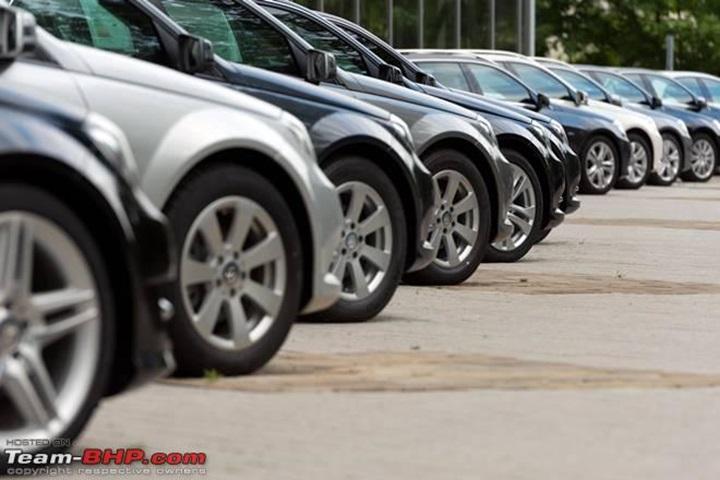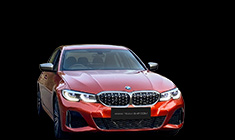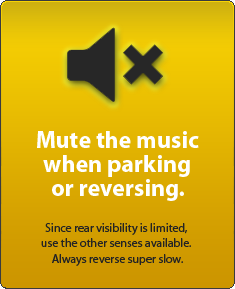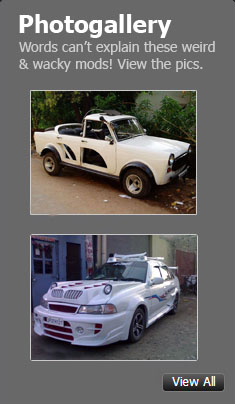News
Future of new and used car market in India
Are we moving to a future where few people buy new cars, used cars are very cheap compared to the new ones and the market for used cars is much bigger?
BHPian jazzy recently shared this with other enthusiasts.
When I got a chance to stay and work in a country on the other side of the globe, what I did within a few days was buy a pre-owned car. It was an obvious choice, an utter necessity. The moment I took the first ride, it was an indescribable moment, feeling like a baby bird just made the very first flight. It was my first car. What struck me was the ease with which I could buy a used car and how “mature” the market was compared to our own.
The whole process of finding the dealers, the showcasing of long lists of inventories, the availability of the cars for a quick spin, third-party agencies specialising in thorough testing of each mechanical and electrical part and scoring those, fixing the potential value range, the transfer of money and the eventual transfer of ownership of the vehicle. This was a couple of decades back, a time when the use of the internet wasn’t so prevalent, everything was done offline.
Times have changed and our own online/offline dealers have more-or-less developed similar operating models, except for the part where the inspection agencies are not always third parties and so there could be biased reporting on the condition of some pre-owned vehicles. However, the ease at which we can sell our cars is amazing. I was able to get the whole process completed for my previous car, in about 10 days out of which about 9 days were spent on negotiating with the online dealer to relent to my perceived selling price. I can only assume that the ease of buying from such dealers would be equally great.
One thing which glaringly still isn’t at par with the other “matured” markets, is the price discovery or rather “lucrative value of pre-owned cars for buyers”. The online/offline dealers have cornered most of the inventory and just like the builder-contractor nexus in the real estate sector, they have deep pockets to sit on their inventories and wait until they are able to fetch good mark-up on the vehicles. They also need to showcase a good list of available cars and so, selling for lower margins doesn’t really work to their advantage. After all, cars are not highly consumable items that we need to replace ever so quickly, most of us still keep ours for at least a few years, sometimes over a decade (I did too).
This landscape has been changing rapidly though it may not be noticeable so easily to everyone. Car manufacturers are gearing up to launch more models at more frequent intervals. Case in point - MG has announced that it will release a new model every 3-6 months! There was a time when Maruti used to take years to launch a new model. Our homegrown M&M has been launching new cars or upgrades almost every year now. Tata Motors has been launching new ones or updating old ones at a much quicker pace, albeit some of them are the so-called “Dark” editions but there is a buzz every few months about some new launch or update. With so many new launches, some are bound to lose value in used car markets very quickly, especially the discontinued models.
Secondly, changing government regulations necessitate some powertrains to lose value faster. Diesels have been the chief victim, at least in some regions.
Thirdly, upcoming technologies are going to render some specific models not so desirable. A new battery tech, for example, could lead to a lot of cars lose their resale values quickly.
A critical piece of the puzzle that’s missing in our market, is the availability of trusted third-party agencies who can do thorough checking of any vehicle and suggest an accurate price range for any prospective buyer. When buyers have this trust, at least some of the prospective buyers would shift to buying used cars rather than going for new ones.
Most importantly, there is going to be an abundance of used cars in the near future, which should help in bringing prices down further. Pre-owned vs new car sales in India have crossed a ratio of 2:1, while it was 1:1 just a few years ago. However, it is over 3:1 in the US.
The debatable point is - are we moving to this future soon, in a few years maybe, a future where few people buy new cars, used cars are very cheap compared to the new ones and the market for used cars is much bigger? Or are we going to continue in the current state for much longer as our cars per capita is still very low, we view the sellers with a lot of suspicion, we continue to find some pride in buying a new car and some kind of shame in telling others that it was pre-owned?
What would BHPians prefer to buy - new or used? Would that decision change if used cars were cheaper and a comprehensive report of each and every mechanical/electrical component of each car was available (not just service reports) from a trusted source? Would it help to decide if you knew that you as a second/third owner would still be able to sell easily, when the time comes, without devaluing your car a lot? Do you still feel proud to tell others that you bought a new car and not a pre-owned one?
Here's what BHPian ritedhawan had to say about the matter:
My father always preferred buying used cars since 2003, and in the space of 21 years, he bought to the tune of 4 used cars and 3 new ones. I bought my first car which was a 10-year-old Honda Accord which is set to expire this May 2024.
Due to my bad financial condition. My father has decided to buy us a used car and has asked me and my wife to look for one before the end of April. All the cars were bought offline from those age old car dealers like the ones in Karol Bagh, New Delhi.
Those who have driven cars past 6-digit mileage and have a superficial knowledge of what goes under the hood of the car can never be fooled by illegitimate practices or lack of checks performed by offline or online car dealers. People who are well versed, only need to drive an intended used car to buy for 15-20 minutes to know exactly what's in place and what's not.
They may not even require the opening of the hood to investigate, or scrutinize service records, or not be able to figure out meter tinkering etc. Whether it's offline or online, a vehicle under its hood won't lie, and if a car has been taken care of via ASC or FNG, whether it was driven by considerate owners or not. When a well-versed and experienced buyer drives it for a couple of minutes, the vehicle won't lie and it should show its true colours for the buyer to perceive and take note of, and then it's his/her choice to go for the purchase or not. This is an important aspect that holds its ground.
I am in the midst of writing a long ownership experience of my third-hand used Honda Accord and would soon release it on TBHP.
Here's what BHPian nidhinpr had to say about the matter:
I agree with many of your points, particularly concerning dealers stocking up inventory, which can drive up market prices and lead to selling at a premium. Additionally, the uncertainty surrounding the quality and condition of the product due to limited information and time with the machine being sold is a valid concern. Ultimately, dealers are running a business, and it's the buyer who may end up at a disadvantage in such transactions.
If you were to ask me, I would definitely opt for a preowned machine, especially from a financial perspective. It's a well-known fact that vehicles depreciate rapidly once they leave the showroom, typically losing 10-20% of their value immediately and up to 40-50% within 4-5 years. While sellers and dealers may try to argue otherwise and inflate prices, with the right data and analysis, you can negotiate effectively. Insured Declared Value (IDV) serves as a useful indicator for estimating the ideal price of a vehicle, as it's a key factor in calculating insurance premiums. Remember, higher IDV translates to higher insurance premiums.
Additionally, platforms like Orangebookvalue provide insights into the resale value based on various factors. Any price above this value can be considered a premium. In the process of gathering information, it's crucial to utilize all available tools and conduct thorough research. Relying solely on third-party assessments may not suffice. Testing the machine and identifying potential issues requires skill and experience, which not everyone possesses. Having an unbiased companion or a skilled mechanic by your side can greatly assist in making an informed decision.
From what we've discussed so far, it's evident that the process of buying a vehicle can be quite daunting and time-consuming. Many people opt for dealerships simply because they seem like the easier option from a distance. However, once you're in the thick of it, the outcome largely depends on individual skills or luck. Dealers often prioritize making a sale rather than addressing potential issues or providing thorough service. That's why I prefer to deal directly with the owner, regardless of the number of previous owners or kilometers driven. If the owner can provide sufficient data for me to evaluate the vehicle, I feel more confident in the transaction.
Indeed, the decision to buy pre-owned or new vehicles is deeply influenced by individual ideologies and needs. While I personally prefer pre-owned vehicles, my dad always opts for new ones due to his distrust of the previous users' history. We've had our VW 1.2L Polo for 14 years now, and it's still going strong.
There's no shame in admitting whether your vehicle is pre-owned or new. It ultimately comes down to individual self-esteem and how much society and social status factor into one's decisions. For enthusiasts or those with strong self-actualization, this distinction isn't a concern. However, for those who prioritize showcasing their status or fear losing their pride, it can become an issue.
I'd suggest simply embracing the moment and spending more time enjoying the drive/ride without overthinking it. Make sure to educate yourself and thoroughly research the vehicle you're interested in & take your time before making a final decision. Additionally, it's reasonable to pay a higher price for a vehicle in pristine condition or one that's rare to find.
Here's what BHPian youknowitbetter had to say about the matter:
As a family, we have bought an equal number of new and pre-owned cars. Pre-owned cars have served us well. 2 pre-owned cars were just 10 months to 18 months old, so practically they were as good as new cam at a really good price. As a matter of fact, I am looking for a pre-owned sedan as a second car, but this time I don't want to spend too much money, so may be okay to buy a relatively older car.
In terms of the process, my preference is to check with friends if they know someone who is looking to sell a car as it's easier to rule out a 'lemon' eventuality! Let's see how it goes.
Check out BHPian comments for more insights and information.



















